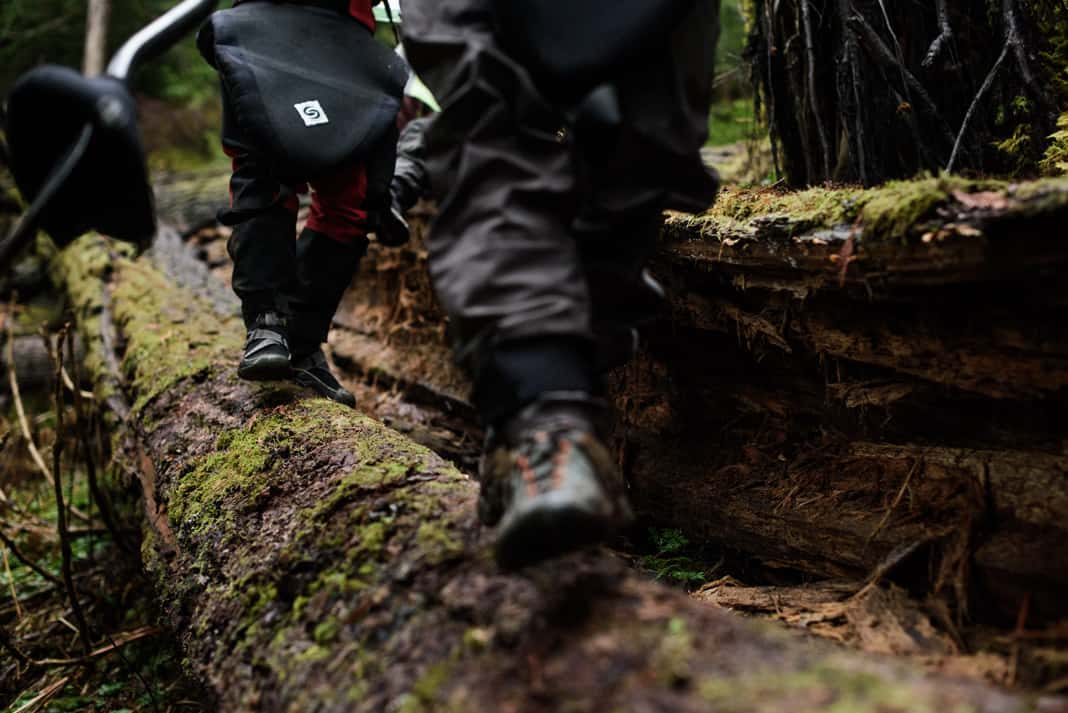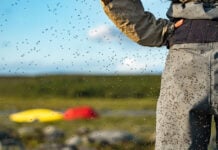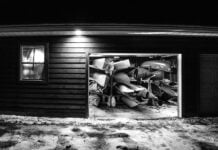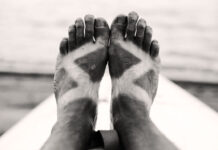The Kipawa River spills under a bridge in the village of Laniel, a cluster of houses along the two-lane highway in northwestern Quebec. It’s roughly a six-hour drive from the Paddling Magazine office, which means if I leave after a full day of work, I’ll be rolling into town three hours after dark even on one of the longest days of the year.
It was around noon on Friday when my first trip to the annual Kipawa River Rally began to come together—around noon, 19 years ago. A chain of last-minute emails resulted in three of us able to drop everything, or nothing, and be on the road with six hours of notice.
Adrian was a river guide who was just off back-to-back seven-day trips. James had spent the week in a hammock rereading Corrections and was happy for anything else to do. I would have the early summer 2001 issue of Rapid off to printers in time to meet the boys at my place around six.
Paul Brown is a former editor at Business Week and he is the co-author of the business book Just Start: Take Action, Embrace Uncertainty, Create the Future, published by Harvard Business Review Press.
Based on his photo on Forbes.com, Brown doesn’t look like a paddler but if more of us followed his business advice, he would get us on the water more often. In his article, “If You Want To Be Successful, Don’t Spend Too Much Time Planning,” Brown suggests success begins with just two simple steps.
Brown’s first step toward success is desire. “You think of something you want. You don’t need a lot of passion; you only need sufficient desire to get started,” says Brown.
Getting started can be as simple as a one-liner email to a few buddies, “I’m thinking of heading to the Kip this weekend.” A common and mildly passionate plea to avoid mowing the lawn. But according to Brown, to be successful this is not quite enough.
There was nothing in the so-called convenience store except tobacco, soda, candy bars and preserved meats.
To make an idea happen one must, “Take a smart step as quickly as possible toward the goal,” says Brown. A smart step, he says, is one where you act quickly with the means at hand. No master plan, just immediate action.
I emailed again offering to drive and suggesting we meet at my place to load boats.
Brown says to take action, reflect and then build on what you’ve learned from taking the first step. Then, take another step toward the goal, reflect and build. Act, learn, build. Repeat until you arrive at the put-in of the Kipawa River.
The problem with planning, whether it is starting a whitewater paddling magazine at 26 years old with no journalism experience or heading off on a weekend adventure to a place you’ve never paddled, is the overwhelming list of shit we don’t know. What is the water level? How hard are the rapids? What boats should we bring? Is there camping? Are there restaurants nearby?
Planning, says Brown, “starts with the assumption that you can forecast the future with a high level of certainty.” The number of extremely predictable situations in everyday life is decreasing, not to mention the variables which make paddling rivers, lakes, and oceans so damn rewarding. Even the best-laid plans will get you only so far.
Waiting for the attendant to take the last few drags of his cigarette outside the roadside gas bar in the pulp and paper mill town of Témiscaming, I took note of the variety of beef jerky and an assortment of pepperoni stick flavors available. There was nothing in the so-called convenience store except tobacco, soda, candy bars and preserved meats. This was our last stop for supplies, and the real grocery store in town had closed hours ago.
If we’d taken the time to plan the perfect menu for the weekend, it would have passed us by. Are you spending too much time planning and missing out on fun adventures?
Listen to the advice of Paul Brown. With a little passion and one little action you can go now and figure the rest out along the way. This is bigger than just weekend festivals; his secret to success is the same for summer trips and bucket list expeditions. Kicking an idea into action gets the ball rolling, builds momentum and before you know it, you’re loading boats, packing gear and heading somewhere.
Almost 20 years later, I still believe piling into the truck late Friday night and stopping along the way to fill PFD pockets full of Mars bars and meat sticks is the key to success. Metaphorically speaking, of course.
Scott MacGregor is the founder and publisher of Paddling Magazine. He points out they stopped at a roadside French fry stand for dinner Friday night. Saturday night there was a river conservation fish fry fundraiser. He only ate Mars bars and meat sticks for two lunches and one breakfast. Mars bars were discontinued in the United States in 2002, replaced with the slightly different Snickers Almond. But you get the idea.







